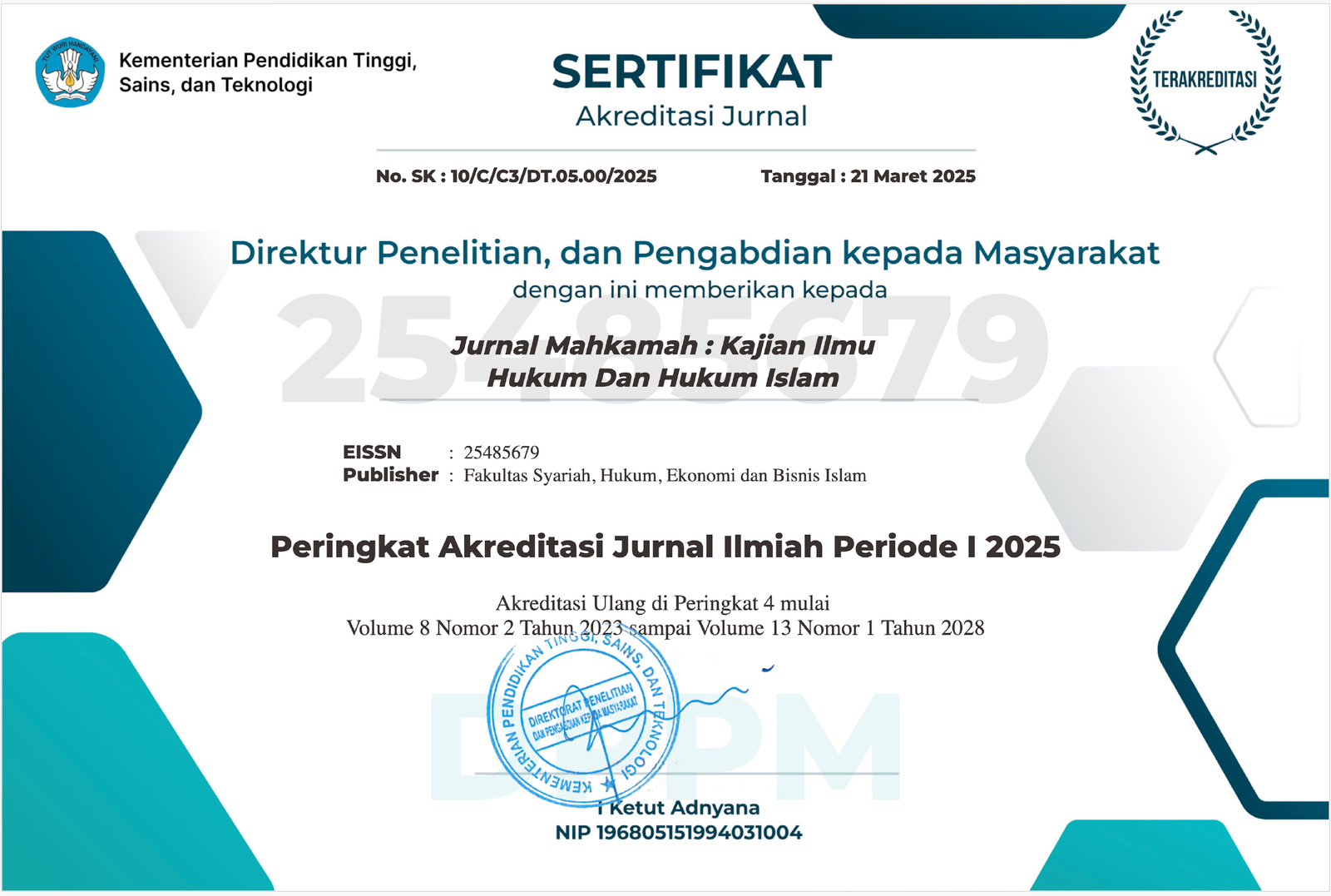Taxpayer Efforts in the Examination Procedure to do not Continue in the Investigation Process
DOI:
https://doi.org/10.25217/jm.v6i2.1336Keywords:
Taxpayer, Examination Procedure, Investigation ProcessAbstract
The obligation to pay taxes that are compelling for the needs of state development, which is regulated based on the 1945 Constitution, in Article 23A. Purpose to find out (1). The process of examining taxpayers in decision No.19 / PIS / SUS / 2015 / Pekan Baru High Court is in accordance with applicable procedures. (20). This is to determine the legal remedies for taxpayers in the audit process so that they are not processed during investigation. The research method using juridical normative using primary law, namely: (a). KUHP, KUHAP (b). Tax laws and regulations, (c). Secondary legal materials as an explanation of primary law, namely: (1). Research form (2). Type of normative legal research (3). The process of collecting and analyzing data. Conclusion: There is an examination process for tax violations that refers to the existing laws and regulations. (1). Investigate tax violations (2). Carry out investigations guided by the provisions of the Criminal Procedure Code
Keywords: Taxpayer, Examination Procedure, Investigation Process
References
Bohari., 2017. Tax Morality as supporting the success of tax collection, Fiat Justica Journal of Law Science Volume 17 No.4 p. 380
Burton, B, Ilyas., 2013. Tax Law, 6th Edition. Jakarta: Salemba Empat.
Diana., And Djajadiningrat., 2013. Basic Concepts of Taxation. Bandung: Refika Adiatama
Eko., 2016. The Effect of Reinventing Policy and Quality of Fiscal Service on Taxpayer Compliance. Widyatama
Hans, Kelsen., 2012. The point of view of the principles of justice and obedience ”, Fiat Justica Journal of Legal Studies Volume 8 No.1 p. 101
H. Afifuddin and Beni Ahmad Saebani., 2012. Qualitative Research Methodology, Pustaka Setia, Bandung
Iiyas., 2011. Contradictory criminal sanctions in tax law ”, Fiat Justica Journal of Legal Studies Volume 18 No.4 p. 525
Kelsen, Hans, 2012. The point of view of the principles of justice and obedience ”, Fiat Justica Journal of Legal Studies Volume 8 No.1 p. 101
Monica, D. Anggraeni., 2010. The Effect of Sunset Policy Tax Facility Utilization on Taxpayer Compliance Level. Diponogoro University.
Nur, Hidayat., 2013. Tax Audit, Elex Media Komputinda, Jakarta
Nurmantu, Safri., 2015. Introduction to Taxation - Edition 3. Jakarta: Granite.
Purwono, Herry., 2010. Basics of Taxation & Tax Accounting. Jakarta; Erlangga.
Rahayu, Siti, Kurnia., 2013. Indonesian Taxation: Formal Concepts and Aspects - First Edition. Yogyakarta; Graha Ilmu.
Officially, Siti., 2012. Taxation Theory and Cases. Jakarta. Four Salemba.
Setiady, Tri., 2015. Implications of Tax Debt Based on Law No.28 of 2008 concerning General Provisions and Tax Procedures for Taxpayers ", Fiat Justica Journal of Legal Studies Volume 9 No. 2 p. 133
Soraya., 2014. Implementation of the Sunset Policy in increasing individual taxpayer compliance at the Cilandak Pratamajalarta Tax Service Office. Unikom
Sussy., 2010. The Influence of Corporate Taxpayer Compliance Level on Increasing Corporate Income Tax Revenue. Gunadarma University.
Suwartono., 2014. Basics of Research Methodology, Andi Ofset, Yogyakarta
1945 Constitution of the Republic of Indonesia
Law of the Republic of Indonesia Number 39 of 1999 concerning Human Rights
Downloads
Published
How to Cite
Issue
Section
License
This work is licensed under a Creative Commons Attribution-ShareAlike 4.0 International License.
Authors retain copyright and grant the Jurnal Mahkamah : Kajian Ilmu Hukum Dan Hukum Islam right of first publication with the work simultaneously licensed under a Creative Commons Attribution License (CC BY-SA 4.0) that allows others to share (copy and redistribute the material in any medium or format) and adapt (remix, transform, and build upon the material) the work for any purpose, even commercially with an acknowledgment of the work's authorship and initial publication in Jurnal Mahkamah : Kajian Ilmu Hukum Dan Hukum Islam.
Authors are able to enter into separate, additional contractual arrangements for the non-exclusive distribution of the journal's published version of the work (e.g., post it to an institutional repository or publish it in a book), with an acknowledgment of its initial publication in Jurnal Mahkamah : Kajian Ilmu Hukum Dan Hukum Islam.
Authors are permitted and encouraged to post their work online (e.g., in institutional repositories or on their website) prior to and during the submission process, as it can lead to productive exchanges, as well as earlier and greater citation of published work (See The Effect of Open Access).









